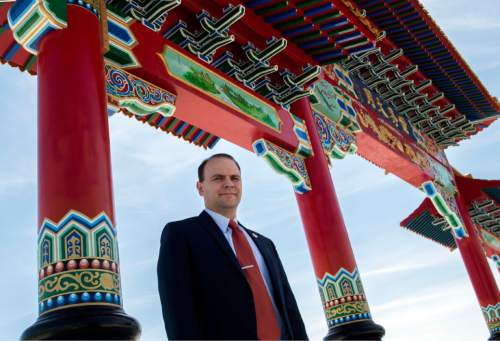This is an archived article that was published on sltrib.com in 2014, and information in the article may be outdated. It is provided only for personal research purposes and may not be reprinted.
Six weeks after a Utah company sued West Valley City over being dropped as the developer of its international marketplace, city officials are fighting back with a counterclaim asking for millions of dollars in damages.
In documents filed Wednesday in 3rd District Court, West Valley City alleges Jordan River Marketplace LLC (JRM) was the one that breached the contract to build the project. To date, the developer "has failed to put a shovel in the ground," according to the city's counterclaim, which is seeking at least $9 million.
"JRM refused to build the project in accordance with the terms of the Contract failing to meet its deadlines and offering 'low ball' projects that did not approach the Contract's stated vision and requirement of an international marketplace," the counterclaim alleges.
In separate motions, West Valley City also is asking for the return of the project land and the dismissal of claims in JRM's suit that the city's failure to approve its development plans constituted a "taking" of the company's property rights.
The 17-acre property in dispute — which lies along 3300 South between 1100 West and 1400 West, south of the Utah Cultural Celebration Center — was acquired by the West Valley City Redevelopment Agency (RDA) for $4 a square foot in 1998.
The idea was to build an international center there that would serve as the eastern gateway to West Valley City, the state's second-largest city, which has about 130,000 residents. In addition, the Jordan River Marketplace was to reflect the diversity in a municipality where ethnic minorities make up nearly half of the population.
The city picked JRM — which was formed by Centerville-based Ascent Construction to bid on the project — as the developer and the parties signed an agreement in late 2009.
That contract committed West Valley City and the RDA to sell the property to JRM for $3 a square foot, instead of the appraised value of $11.87, according to court documents. The city planned to recover the money it paid for the land through tax increment, which is the difference between the taxable value of property at the time a redevelopment project area is created and the taxable value of the property for a certain number of years after that.
In exchange for the multi-million dollar incentive provided by the low land price, the deal gave the city and the RDA control over what was built, the counterclaim says. JRM was required to complete $8 million worth of construction by sept. 1, 2013; that deadline was later extended to Sept. 1, 2014.
West Valley City and JRM held detailed discussions about the project vision — the city envisioned something that would define the area "in a manner similar to Pike's Place Market in Seattle or Fisherman's Wharf in San Francisco" — but the development never got off the ground.
JRM says the city originally solicited proposals to develop 32 acres, but in the end the project properties covered only 17 acres. The company presented proposals for a charter school and a high-density apartment complex but those plans were turned down by the West Valley City Council.
Then, in April, the council voted unanimously to reject JRM's latest proposal for the first phase of the project. The development agreement expired on Sept. 1 and the city did not renew it.
In its suit, which was filed Oct. 13, JRM alleges West Valley City had "searched out ways to delay the project." The company claims that it appears the city or the RDA decided several years into the development process that because the real estate market was recovering, it had made too good of a deal with JRM.
The JRM suit is asking for a court order giving it the right to develop the project site, title to the property and an unspecified amount of money.
West Valley denies the allegations and alleges JRM caused the problems. Instead of proposing a unique, ethnically-diverse project, the company repeatedly appeared before the city council with plans for low-end chain outlets and chain restaurants, the counterclaim says.
The final proposal "amounted to little more than a cheap commercial strip mall development in exchange for million of dollars of real estate," the city's counterclaim says.
It adds that the project area will never recover the lost tax increment because the time to collect that money is running out. In addition, according to the counterclaim, JRM has refused to return the property to the RDA, which effectively doubles the economic loss.
Twitter: @PamelaMansonSLC



